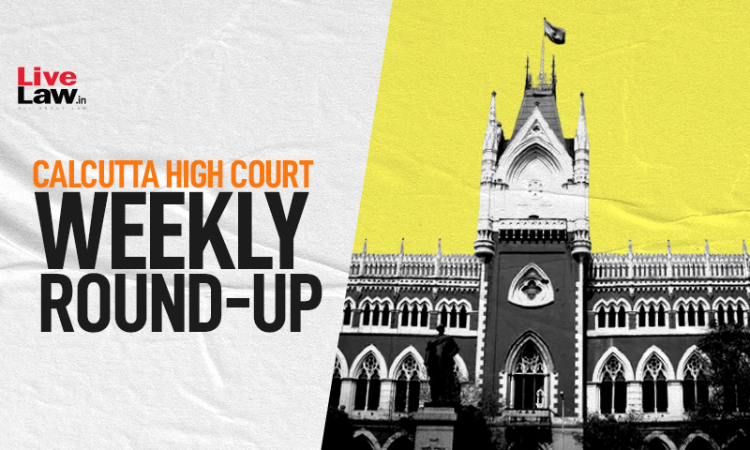Calcutta High Court Weekly Round Up: May 23 To May 29, 2022
Aaratrika Bhaumik
30 May 2022 9:15 AM IST

Next Story
30 May 2022 9:15 AM IST
Nominal Index [2022 LiveLaw (Cal) 201 To 2022 LiveLaw (Cal) 215]Assistant Commissioner v. Ashok Sureka 2022 LiveLaw (Cal) 201Piyarul Sk v. The State of West Bengal 2022 LiveLaw (Cal) 202The Chairperson, West Bengal Commission for Protection of Child Rights v. Election Commission of India & Others 2022 LiveLaw (Cal) 203Md. Firoz Ala @ Firoj Alam v. State of West Bengal 2022 LiveLaw...
